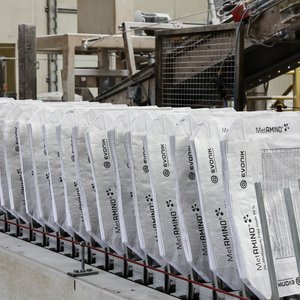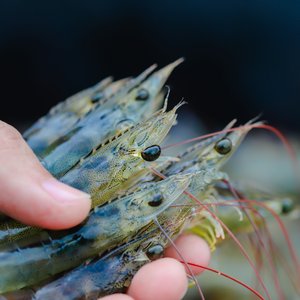The Wisconsin National Guard's 82nd Agribusiness Development Team recently completed three intense weeks cultivating the knowledge and skills needed for next year's Afghanistan deployment. The 82nd ADT spent more than two weeks at Fort McCoy, Wis., honing basic warrior tasks such as land navigation in the sweltering heat. The unit then exchanged one type of field training for another, taking part in a five-day "Ag 101" crash course through the University of Wisconsin-Madison's College of Agricultural and Life Sciences (CALS).
"The CALS training was custom-made for where we're going," said Col. Darrel "A.J." Feucht, 82nd ADT commander. "For the first time out, that training went extremely well."
Feucht said the ADT will head to a part of Kunar province with a climate similar to Denver.
"It's not what you see on TV," he explained. "It's beautiful, but it's very difficult to get in and out."
The mountainous area, located along the border with Pakistan, is heavily forested and also rich in mineral resources, representing an untapped revenue potential. One road connects the province to the rest of the country.
Farmers in the region are subsistence farmers, but typically only raise 80 percent of what is needed to live for a year. Additionally, more than three decades of war have cost Afghanistan up to 40 percent of irrigated farmland and a generation of farmers. Farming techniques are rudimentary by American standards. Agribusiness Development Teams aim to improve farming techniques and make farming a profitable venture, but first they have to cultivate relationships with Afghani farmers.
"You've got to understand the culture," Feucht said. "The country's been at war for decades - the people aren't very trusting. You don't go right in and start projects. They want to get to know you and trust you - that process takes a long time."
The CALS training helped the ADT understand the types of soil, weeds and insect infestation they will encounter in Afghanistan, which will help as they continue to operate demo farms that show Afghani farmers how more modern techniques can work. The 82nd ADT will maintain the demonstration farms currently operated by the Illinois National Guard's Agribusiness Development Team.
CALS instructors indicated that the 82nd ADT members will have their work cut out for them during their deployment.
"As part of their community-building efforts, they will be invited to dinner in Afghan homes," said Beth Button, a food sciences department instructor who led a food safety class for 82nd ADT troops. Eating locally produced meals exposes ADT members to food-borne diseases caused by pathogens to which locals have developed resistance. "We wanted them to come away knowing how to participate in the meals with confidence and gusto so they won't offend anyone but also not get sick."
The fish farming industry in Afghanistan is experiencing some early difficulties, according to aquaculture specialist Terry Barry of the CALS animal sciences department. Beyond the inherent challenges of establishing such a venture, Afghani fish farmers have had fish stolen from their ponds, grenades thrown into their ponds, and fish feed shipments interrupted.
Capt. James Schmitz noted that the 82nd ADT will be in Kunar Province for less than a year.
"We won't even see the entire growing cycle," he said, adding that it's important to pass on farming knowledge to help Afghani farmers develop their capacity.
"We want to help them, work with them, but not do it for them," said Sgt. 1st Class Chris Beron, a beef farmer from northern Wisconsin. "They may teach us a thing or two - they've been farming for thousands of years and they're still there."
Schmitz said some simple practices not used in Afghanistan, such as trellising grapes and cucumbers, can result in bigger crops. He also acknowledged that poppies are a problem in the area the 82nd will deploy to.
"Our focus is really on legitimate agriculture," he said. "If they have some extra they can sell on the market, that's really our goal."
Beron said he can apply the soil nutrition knowledge he gained to help Afghani farmers maximize their yields, to include meat and dairy production.
"Afghanistan doesn't have a lot of developed soils, meaning they're not very productive," said Matt Ruark, a soil and fertilizer expert with CALS. "Most of the soils map of Afghanistan shows rocky terrain and desert. However, the area this group is going to is the best in the country - it has the most developed soils."
The Babcock Institute for International Dairy Research and Development and the Arlington Agricultural Research Station - both part of CALS - organized last week's classes. Outreach Specialist David Kantor explained that while the Babcock Institute designs custom training programs for numerous groups throughout the year, this training program was different in two ways. Because some of the training topics were not dairy-related - beekeeping and textiles - the institute reached out to a larger field of technical experts for instructors as well as drew from the experiences and knowledge of individuals and other ADTs familiar with Afghani farming practices. Also, as an international organization, the Babcock Institute rarely teaches a U.S. audience.
Feucht said that the 82nd ADT will devote the remainder of its training time, which includes another three-week block of instruction, to warrior tasks and theater-specific training.
The National Guard has successfully used the agribusiness development team concept in Central America for the past two decades, drawing on the rich farming experience of many Guard members. The Guard brought the concept to Afghanistan in 2007. The initiative capitalizes on the skills of its Citizen Soldiers to help a developing democracy a safer and more productive way to feed its people. The concept also stays true to the image of the Concord Minuteman, with one hand on a musket and the other on a plow.
Since 2007, 19 agribusiness development teams have operated in 14 Afghani provinces, contributing to more than 280 sustainable agriculture projects that generated more than $21 million in revenues for Afghani citizens.
Agribusiness development teams are one part of a broad agriculture strategy being implemented by the U.S. and Afghanistan governments, as well as non-governmental organizations. The initiative's goal is to help Afghan farmers identify local solutions to local agricultural problems in a region of Afghanistan that one day could be considered the bread basket for that part of the world.










